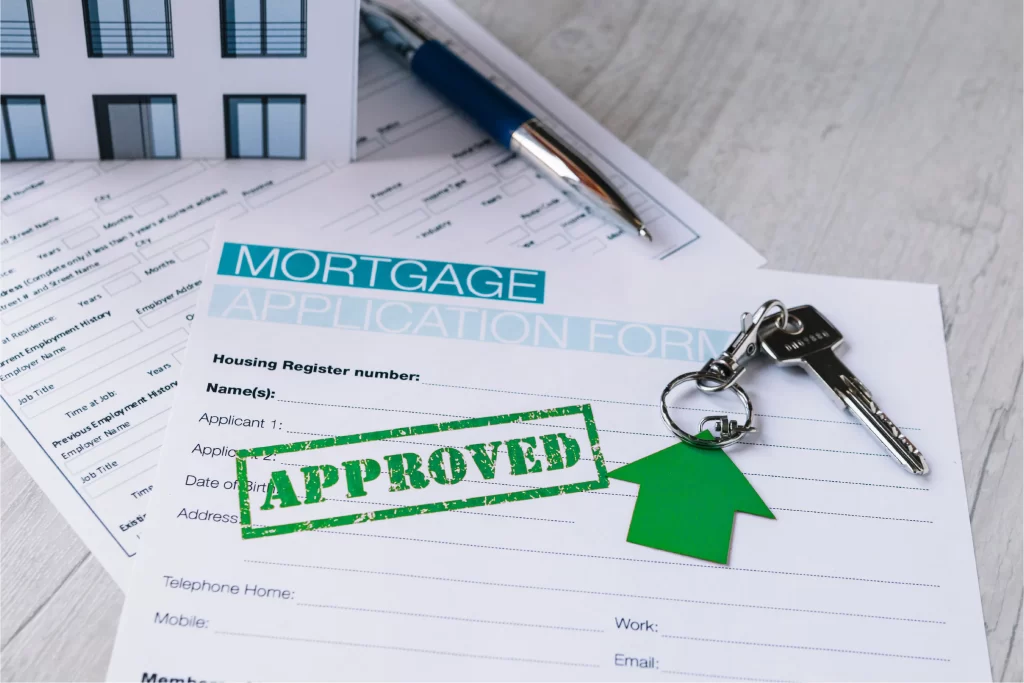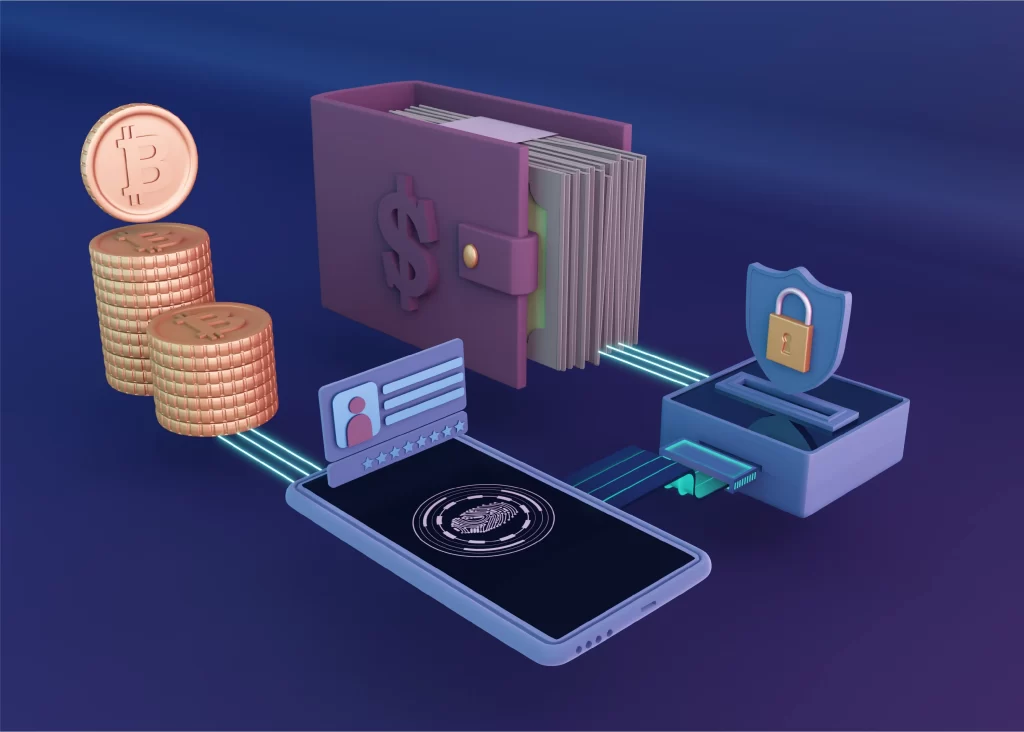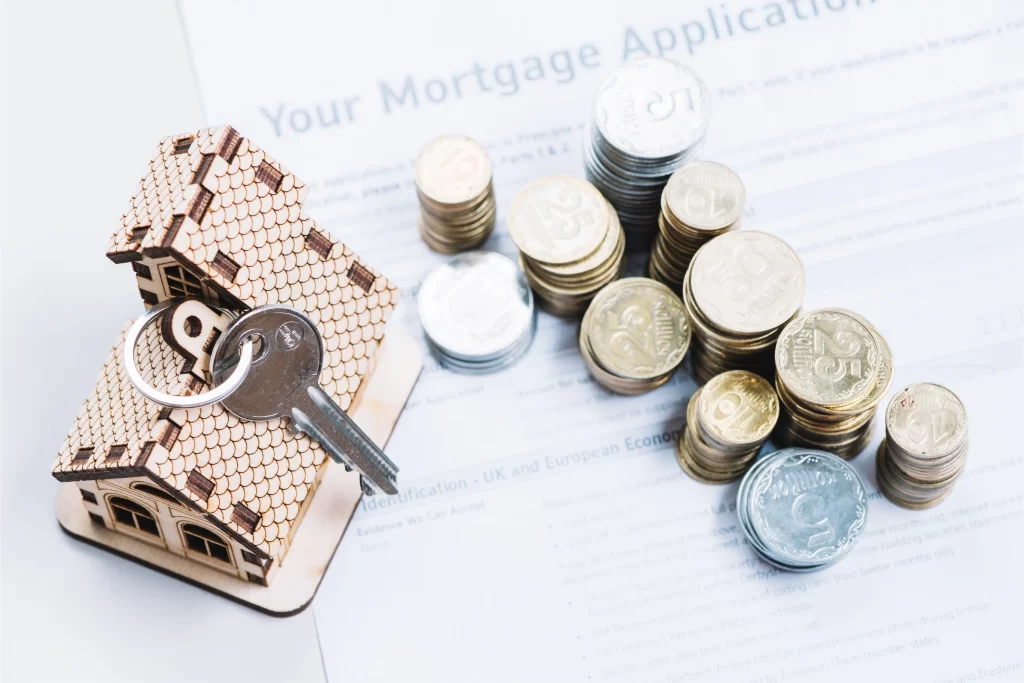Crypto-backed mortgages are a new financial tool that uses digital assets like Bitcoin and Ethereum to secure traditional loans. This simple guide explains what they are, how they work, and what they mean for you.
Understanding Crypto-Backed Mortgages

Crypto-backed mortgages are unique loans that use digital assets like Bitcoin (BTC) or Ether (ETH) as collateral to get regular mortgages. These mortgages became popular because cryptocurrencies can increase in value quickly. People use these assets to get traditional loans.
In 2018, Salt Lending introduced crypto-backed mortgages. People could use their cryptocurrency as security for loans. However, they faced legal problems, and the company changed its offerings.
How Crypto-Backed Mortgages Work

With crypto mortgages, your loan amount depends on how much your cryptocurrency is worth. Your digital assets stay safe until you pay off the loan.
Companies that provide crypto-backed mortgages use blockchain technology and smart contracts to ensure secure and transparent transactions. These technologies are the basis for cryptocurrency-collateralized loans, where digital assets help you get loans.
Types of Crypto-Backed Mortgages

There are different types of crypto-backed mortgages, including purchase mortgages, cash-out refinancing, and bridge loans.
- Purchase mortgages are for buying real estate and use cryptocurrency as collateral.
- Cash-out refinancing lets homeowners with existing mortgages use their cryptocurrency to get money for different reasons.
- Bridge loans use cryptocurrency as security for short-term loans, covering the gap between buying a new property and selling an old one.
The Process of Getting a Crypto-Backed Mortgage

To get a crypto-backed mortgage, you start by giving your cryptocurrency to the lender. They check how much your collateral is worth to decide the maximum loan amount. Then, they set the interest rate, payback terms, and the loan term length.
When you agree to the terms, you put the cryptocurrency into an escrow account held by a third party. This account keeps your money safe until you meet specific conditions.
While you have the loan, your collateral stays locked. To avoid problems with cryptocurrency value going down, you usually keep some extra money between the collateral’s worth and the loan balance. You pay back the loan in regular currency.
When you pay back the whole loan, you get your cryptocurrency back. But if your cryptocurrency’s value drops significantly, you might have to add more collateral to make up the difference.
The extra money you keep between the loan balance and collateral value is a buffer. It helps protect you and the lender from quick changes in cryptocurrency value. Crypto-Backed Mortgage Products Crypto-backed mortgage products, like crypto collateral loans and decentralized finance (DeFi) mortgages, help cryptocurrency owners get money without selling their digital assets.
Variants of Crypto-Backed Mortgage Products

- Crypto collateral loans use cryptocurrency as security to get a loan. Your loan amount depends on how much your collateral is worth.
- Stablecoin mortgages use stablecoins, digital currencies that match regular currencies, as collateral.
- DeFi mortgages use blockchain technology and smart contracts to let you borrow and lend without intermediaries. Platforms like Aave and Compound do this, and you can use your crypto assets as loan collateral. You can also use different cryptocurrencies as collateral, which gives you flexibility and lowers risks.
Blockchain technology also lets you divide ownership of a mortgage. This means you can divide your real estate into smaller parts and offer them to investors, letting them invest in real estate more efficiently.
Buying a House with Crypto-Backed Loans

If you want to buy a house with a crypto-backed loan, look for good lending companies, choose your cryptocurrency as collateral, fill out loan applications, and consider legal issues.
It’s important to find trusted lending companies that offer these mortgages. And it would be best if you chose a cryptocurrency to use as collateral. Then, you can send your loan application through the lending company you picked, giving them the documents they need, like proof that you own the collateral.
The lending company checks how much your collateral is worth to determine how much money you can get. If they approve your loan, you review its terms, like interest rates, payback conditions, and collateral rules.
Afterward, you get the loan amount in regular money, cryptocurrencies, or stablecoins. You can use this money to buy a property. Benefits and Risks of Crypto-Backed Mortgages Crypto-backed loans are suitable for people who have cryptocurrency because they can use it to get money without selling it and paying taxes.
They also let people invest in traditional stuff, like real estate. These mortgages help people who can’t use regular banks get loans. People who get these mortgages can still make money if their cryptocurrency’s value increases while using the loan.
These mortgages help cryptocurrencies become more useful in everyday life. They also let people invest in regular things using their cryptocurrency. This is better than trading on cryptocurrency exchanges, which can be complicated.
The cons of Crypto-Backed Mortgages

But crypto-backed mortgages have cons. The crypto you use as collateral can go down in value fast, and you might have to add more collateral or pay the loan back. You also need to note that regulations backing cryptocurrency-based financial products are changing, so things might need to be more stable and legal.
Hackers can also steal the cryptocurrency you use as collateral. You must understand the loan terms, like interest rates, costs, and taxes. Before getting a crypto-backed mortgage, consider how much risk you’re comfortable with and how much profit you can make. This helps you decide if it’s a good business opportunity based on how much you can get and how much risk you’ll take.
Final Thoughts
Crypto-backed mortgages allow cryptocurrency holders to access funds without selling their digital assets. They enable investments in traditional assets like real estate, bridging the gap between the digital and physical worlds.
However, it’s essential to remember that the volatile nature of cryptocurrencies can lead to risks such as margin calls or collateral loss. Additionally, the regulatory landscape is evolving, adding an element of uncertainty. Therefore, it’s crucial to weigh the potential benefits against these risks and make informed decisions when considering crypto-backed mortgages.
READ NEXT : AI Trends














Leave feedback about this